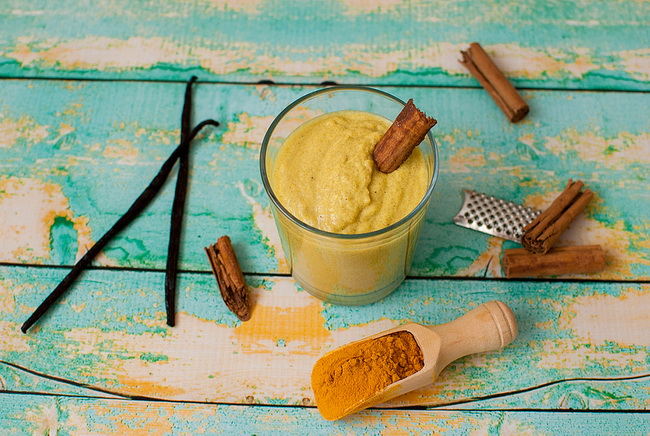- Make It Yourself Lavender Heart-Shaped Bath Bombs!
- 20 Things You Never Knew About “Down There”
- 12 Best Foods For Those Suffering From Arthritis Pain
- 12 Personal Hygiene Mistakes Almost Everyone Makes (Mom Never Told You About #4!)
- 15 Medicinal Plants And Herbs From The Cherokee People
- 12 Mind-Blowing Benefits Of Drinking Coconut Water During Pregnancy
- 12 Outstanding Winter Foods That Won’t Fatten You Up Like A Christmas Turkey
The Truth about Turmeric and Alzheimer’s Disease

Photo credit: bigstock.com
In this clinical setting, scientists found that inhaled curcumin was actually more effective than an intravenous injection in a study done with mice.
Although an actual treatment using turmeric has yet to be developed, turmeric has a wide variety of health benefits for humans. Turmeric is known to be an excellent antiseptic, antioxidant, and anti-inflammatory that works wonders in the body.
Current drugs only address its symptoms and attempt to slow the progression of this disease, nothing more. Turmeric has been used as medicine for untold centuries. Although many of the recent research studies have focused on its effects against cancer, curcumins potential to fight Alzheimer’s comes from its ability to arrest harmful enzymes and molecules.
Other studies show that turmeric is effective against liver damage, the formation of cataracts, and helps to protect the body from the damage of stroke and heart attacks, while it’s super anti-inflammatory effects can help keep Alzheimer’s disease at bay.
Some studies have shown that turmeric can help to avoid the evolution and progression of amyloid beta plaque buildup in the brain. One study found that using a combination of curcumin and rosmarinic acid stopped the formation and extension of these beta amyloid fibrils. This lead the Japanese research team to note that turmeric could be a key agent for the development of therapeutics for those suffering with Alzheimer’s disease, or the prevention of it. Read more about turmeric regenarating the brain.
Continue to Page 4

































Rajen
Jul 11, 2015 at 2:56 pm
how can we increase turmeric. curcumin in our diet…
Gabe
Jul 12, 2015 at 1:46 pm
Curry, which has turmeric as a main ingredient, is a flavorful way of adding turmeric to your diet. Fresh turmeric, root as a whole food, may be the best way to increase your intake of curcumin.
Rajen
Jul 12, 2015 at 3:47 pm
Hi Gabe, Thanks so much for your response. I’m from India and eat primarily vegetarian dishes at home. They all have turmeric, ginger, garlic and other spices in them. The turmeric in like three recipes is maybe a couple of tea spoons for a serving of 9. Surely it’s better than nothing, but does it get even close to having any beneficial effect. What is the MDR-minimum daily requirement to be of medicinal value. Where can i get more info on this. Thanks again…;)))
Gabe
Jul 12, 2015 at 5:43 pm
Namaste’, Rajen
the internet will provide you with any query you have. You can start with asking, ‘benefits of curcumin’.
The best of health.
https://www.google.com/webhp?sourceid=chrome-instant&ion=1&espv=2&ie=UTF-8#q=benefits+of+curcumin
MindfullyLiving
Jul 13, 2015 at 3:05 pm
There is also a Tumeric User Group on facebook for anyone interested and please also check out Doug’s fabulous new website http://www.turmericlife.com.au/